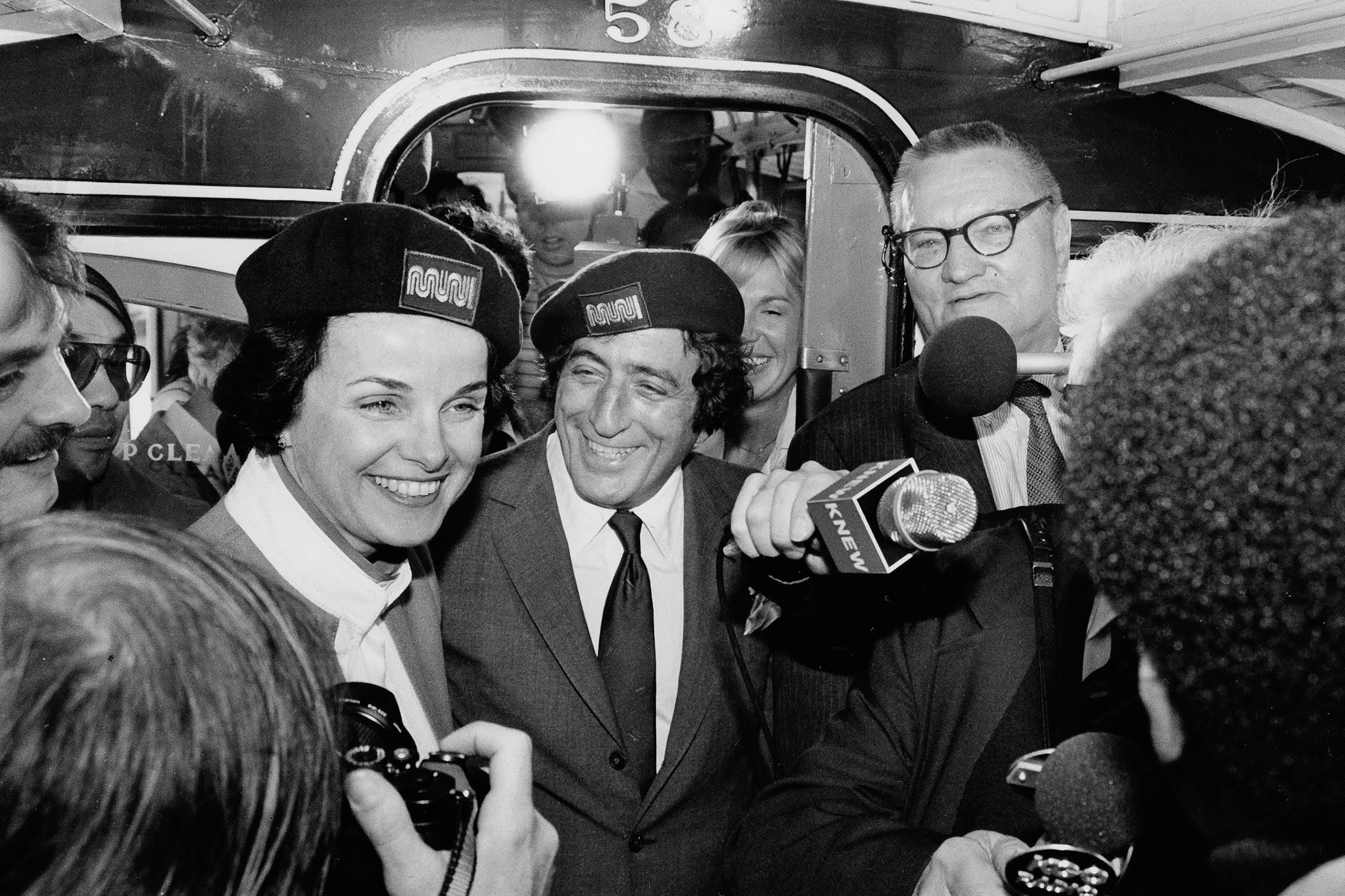In 1979, San Francisco’s iconic cable cars were falling apart—so much so the transit service had to be shut down for six months for emergency repairs.
“They were limping along and had become dangerous,” said Rick Laubscher, president of Market Street Railway who at the time was the chair of the Chamber of Commerce’s Transportation Committee.
The city’s signature mode of transportation had already been saved once—by concerned citizen Friedel Klussmann in 1947—but they needed another savior. This time, a politician rode to the rescue: former Mayor Dianne Feinstein.
Feinstein—who died Thursday night at the age of 90—had recently been elected as California’s first woman senator and led the effort to raise $60 million to overhaul the cable cars’ infrastructure through a combination of federal and private funding. The price tag to restore the system meant that the city was on the verge of completely scrapping the entire network, but Feinstein not only secured the funding but kept the project on a tight schedule so that the cable cars were back in action by the Democratic National Convention held in San Francisco in July 1984.
“We very well may have lost the cable cars forever, had it not been for Dianne,” Laubscher said.
Concerned about the impact of the absence of cable cars on tourism, Feinstein also oversaw the creation of the San Francisco Trolley Festival, which spotlighted vintage streetcars and ultimately led to the creation of the beloved F line, to entertain visitors during the nearly two-year temporary closure of the cable cars.
Feinstein herself became a San Francisco icon after being thrust into the position of mayor in the wake of the assassinations of Mayor George Moscone and Supervisor Harvey Milk. Over the course of her half-century-long career in public service she called for the investigation of the CIA’s use of torture in the wake of 9/11, advocated for stricter gun laws, stood in defense of gay marriage and helped to pass the Lake Tahoe Restoration Act.
Laubscher has been reflecting on Feinstein’s role in the world of San Francisco history as the cable cars celebrate their 150th anniversary this year. Feinstein, who was supposed to be an honored guest at the celebration’s kickoff, didn’t end up appearing because of health reasons.
“She was planning to come, up to the morning of the event,” Laubscher said. “But she just didn’t feel up to it.”
Laubscher sees Feinstein as carrying on Klussmann’s legacy not only because she was instrumental in preventing the extinction of San Francisco’s iconic form of transit, but also because they were both women who fought to have their voices heard at a time when sexism was the norm. Neither was taken seriously, and both had to earn their place at the table, Laubscher said.
“While the men were indifferent, it took a woman to step up and say, ‘We’re not going to let that happen,’’” Laubshcher said.
